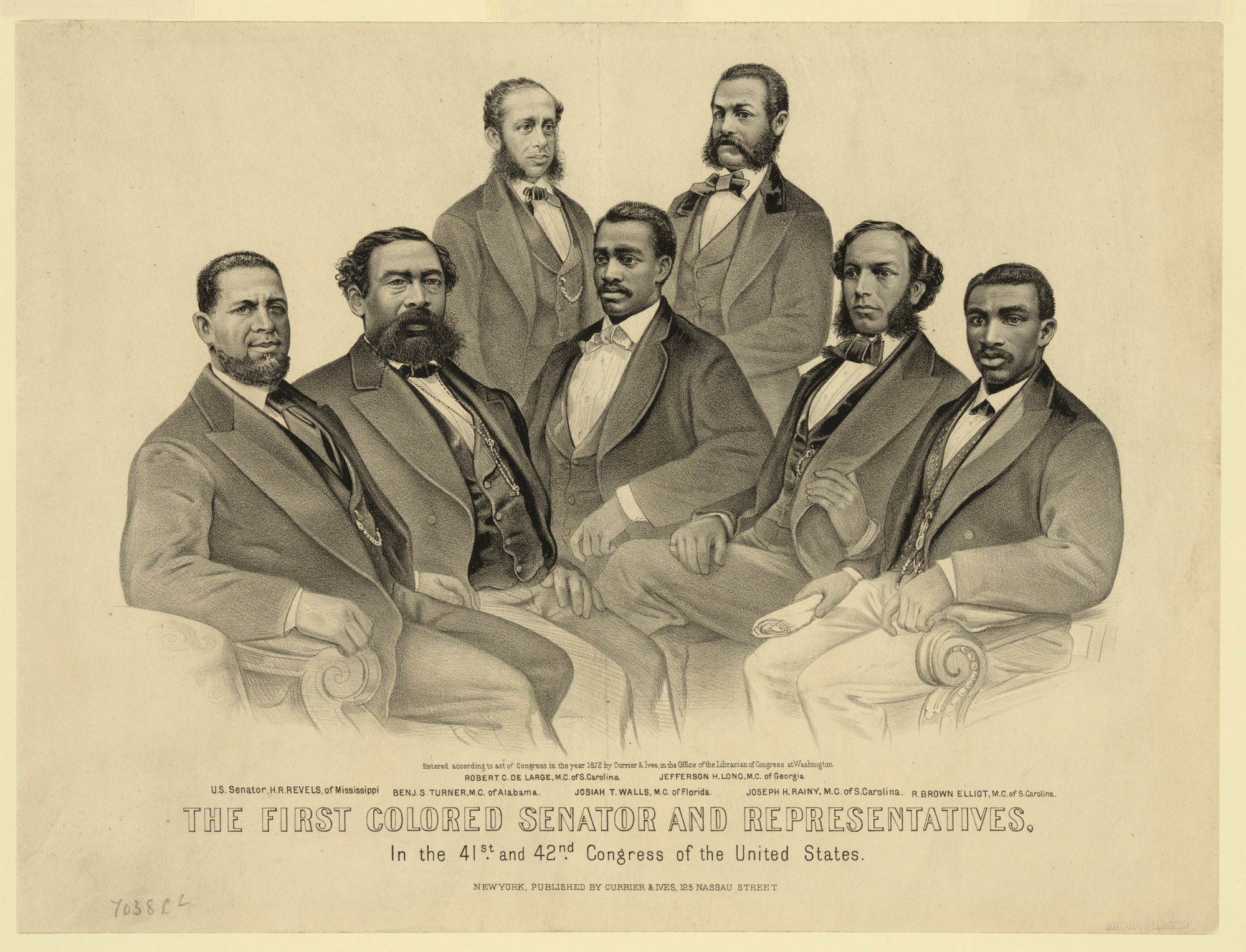Analysis of Candidate Statements on Governance and Alignment with Sustainable Development Goals (SDGs)
This report provides an analysis of statements from twelve candidates for the Lawrence City Commission regarding their philosophy on “good government.” Each candidate’s perspective has been evaluated for its alignment with the United Nations’ Sustainable Development Goals (SDGs), particularly those concerning governance, community, and equality.
Key Themes and SDG Correlation
A review of the candidate responses reveals several recurring themes that directly correlate with the 2030 Agenda for Sustainable Development. The most prominent themes include:
- Transparency and Accountability: A majority of candidates emphasized the need for open, honest, and accountable governance, a core principle of SDG 16: Peace, Justice and Strong Institutions.
- Public Service and Inclusivity: Many statements focused on serving the entire community, listening to all residents, and ensuring equitable service delivery, which aligns with SDG 10: Reduced Inequalities and SDG 11: Sustainable Cities and Communities.
- Effective and Responsive Institutions: The importance of efficient public services, fiscal responsibility, and responsiveness to community needs was a common thread, reflecting the objectives of SDG 16.
- Collaboration and Participation: Several candidates highlighted the value of collaboration and public participation in decision-making, a concept central to SDG 17: Partnerships for the Goals and SDG 16.
Individual Candidate Analysis
-
Paul Buskirk
Mr. Buskirk’s statement distinguishes between “service” and “leadership,” advocating for a government that listens to all voices to make choices that benefit the entire community, rather than being subservient to the loudest voices.
Alignment with Sustainable Development Goals:
- SDG 16: Peace, Justice and Strong Institutions: His focus on leadership that serves the entire community supports the goal of developing effective, accountable, and inclusive institutions at all levels.
- SDG 11: Sustainable Cities and Communities: By advocating for decisions that benefit the whole community, his philosophy supports the creation of inclusive and sustainable urban environments.
-
Mike Courtney
Mr. Courtney defines good government as responsive and effective public service that improves daily life. He emphasizes reliable essential services, transparency, citizen input, balanced growth, and fiscal responsibility.
Alignment with Sustainable Development Goals:
- SDG 16: Peace, Justice and Strong Institutions: His call for responsive, effective, and transparent public service with citizen input directly aligns with the targets for accountable and inclusive institutions.
- SDG 11: Sustainable Cities and Communities: The focus on essential services like road maintenance and utilities, alongside balancing growth and infrastructure, is central to making cities safe, resilient, and sustainable.
- SDG 8: Decent Work and Economic Growth: His mention of attracting businesses while making fiscally responsible decisions supports sustainable economic growth.
-
Mike Harreld
Mr. Harreld views good governance as a system that helps people thrive by empowering individuals, fostering community connection, and listening to all residents, not just those able to attend meetings.
Alignment with Sustainable Development Goals:
- SDG 16: Peace, Justice and Strong Institutions: The emphasis on listening to all people and empowering citizens aligns with the goal of ensuring responsive, inclusive, and participatory decision-making.
- SDG 11: Sustainable Cities and Communities: Fostering spaces for community and connection contributes directly to building inclusive and safe communities.
-
Eric Hyde
Mr. Hyde presents a philosophical view of government as a servant to the people, drawing on principles of universal law, love for neighbors, and spurring good works.
Alignment with Sustainable Development Goals:
- SDG 16: Peace, Justice and Strong Institutions: The underlying principle of government serving the people and promoting good works supports the broader aim of fostering just, peaceful, and inclusive societies.
- SDG 10: Reduced Inequalities: The concept of “giving back the divine within to the divine in all” can be interpreted as a call for universal respect and equality, a cornerstone of this goal.
-
Steve Jacob
Mr. Jacob argues that government should not complicate people’s lives or pick favorites through policies like tax breaks for specific entities. He expresses concern about the impact of budget decisions on the working class.
Alignment with Sustainable Development Goals:
- SDG 10: Reduced Inequalities: His critique of “picking favorites” and concern for the working class directly addresses the goal of reducing inequality within and among countries.
- SDG 16: Peace, Justice and Strong Institutions: The opposition to preferential treatment aligns with efforts to substantially reduce corruption and bribery in all their forms.
-
Alex Kerr
Mr. Kerr provides a concise definition of good government as accountability, transparency, and equity.
Alignment with Sustainable Development Goals:
- SDG 16: Peace, Justice and Strong Institutions: His statement is a direct summation of key targets within this goal, which calls for effective, accountable, and transparent institutions.
- SDG 10: Reduced Inequalities: The inclusion of “equity” as a core pillar of good government is a direct commitment to the principles of this goal.
-
Bart Littlejohn
Mr. Littlejohn emphasizes the importance of collaboration in governing, contrasting it with campaigning. He stresses a mindset of “knitting together” to find solutions for the city’s prosperity.
Alignment with Sustainable Development Goals:
- SDG 17: Partnerships for the Goals: His focus on collaboration and working together to pursue solutions embodies the spirit of this goal, which encourages partnerships to achieve sustainable development.
- SDG 16: Peace, Justice and Strong Institutions: A collaborative approach is fundamental to building consensus and creating effective, inclusive institutions.
-
Amanda Nielsen
Ms. Nielsen prioritizes open and transparent governance that serves all people equally. She highlights accountability and listening to the concerns of residents as essential components.
Alignment with Sustainable Development Goals:
- SDG 16: Peace, Justice and Strong Institutions: Her emphasis on open, transparent, and accountable governance that listens to residents is a clear reflection of this goal’s targets.
- SDG 10: Reduced Inequalities: The principle of serving “all the people equally” is a foundational concept for reducing inequalities and ensuring no one is left behind.
-
Kristine Polian
Ms. Polian provides a comprehensive definition that includes transparency, accountability, fiscal responsibility, and putting people first. She advocates for community inclusion, collaboration, and building an equitable future.
Alignment with Sustainable Development Goals:
- SDG 16: Peace, Justice and Strong Institutions: Her statement covers multiple facets of this goal, including transparency, accountability, inclusion in decision-making, and ethical governance.
- SDG 10: Reduced Inequalities: The specific mention of creating a “more equitable future for all” directly supports this goal.
- SDG 11: Sustainable Cities and Communities: Wise investment in infrastructure and public services is a key component of building sustainable communities.
- SDG 17: Partnerships for the Goals: Her call for a “culture of collaboration” aligns with the need for multi-stakeholder partnerships.
-
Peter Shenouda
Mr. Shenouda defines good government as one that serves its citizens, drawing from his personal experience. He stresses the importance of honesty, transparency, and accountability in correcting mistakes.
Alignment with Sustainable Development Goals:
- SDG 16: Peace, Justice and Strong Institutions: His perspective, shaped by living under a government that did not serve its people, powerfully underscores the importance of honest, transparent, and accountable institutions that are fundamental to this SDG.
-
Bob Schumm
Mr. Schumm believes good government must be completely open, accessible, and transparent. He advocates for easy interaction between citizens and representatives and encourages public participation.
Alignment with Sustainable Development Goals:
- SDG 16: Peace, Justice and Strong Institutions: His entire statement is a robust endorsement of SDG 16, specifically its targets on ensuring public access to information and promoting responsive, inclusive, participatory, and representative decision-making.
-
Courtney Shipley
Ms. Shipley states that good local government delivers services predictably and is responsive to community feedback. She highlights the need for consensus, uniform policy enforcement, and easily accessible information.
Alignment with Sustainable Development Goals:
- SDG 16: Peace, Justice and Strong Institutions: Her focus on predictable services, responsiveness, uniform enforcement, and accessible information all contribute to building effective and accountable institutions.
- SDG 11: Sustainable Cities and Communities: The reliable delivery of city services is crucial for the functioning and sustainability of urban communities.
SDGs Addressed in the Article
-
SDG 16: Peace, Justice and Strong Institutions
This is the most prominent SDG, as the entire article revolves around the candidates’ philosophies on “good government.” Their responses directly address the principles of creating effective, accountable, transparent, and inclusive institutions at the local level.
-
SDG 11: Sustainable Cities and Communities
The context of the article is a City Commission election, and candidates mention essential city services like zoning, road maintenance, utilities, and balancing growth, which are central to making cities inclusive, safe, resilient, and sustainable.
-
SDG 10: Reduced Inequalities
Several candidates explicitly mention the importance of equity, serving all people equally, and creating a more equitable future, which directly connects to the goal of reducing inequality within and among communities.
-
SDG 8: Decent Work and Economic Growth
The discussion touches upon economic development, attracting businesses, and the ease of opening a business, which are related to promoting sustained, inclusive, and sustainable economic growth.
Specific Targets Identified
-
SDG 16: Peace, Justice and Strong Institutions
-
Target 16.6: Develop effective, accountable and transparent institutions at all levels.
This target is central to the article. Multiple candidates highlight these principles. Kristine Polian states, “Good government means transparency, accountability, and putting people first.” Bob Schumm emphasizes that government should be “completely open, accessible, and transparent.” Peter Shenouda calls for a government that is “honest and transparent with its people, one that owns up to its mistakes.”
-
Target 16.7: Ensure responsive, inclusive, participatory and representative decision-making at all levels.
This target is reflected in statements about listening to the community. Paul Buskirk argues that government “listens to all the voices and then makes difficult choices to serve the entire community.” Mike Harreld speaks of governing “in a way that listens to the people of Lawrence.” Bob Schumm adds that “Public participation should be encouraged in order for citizens to have the best means of reaching their representative government.”
-
Target 16.6: Develop effective, accountable and transparent institutions at all levels.
-
SDG 11: Sustainable Cities and Communities
-
Target 11.3: By 2030, enhance inclusive and sustainable urbanization and capacity for participatory, integrated and sustainable human settlement planning and management in all countries.
This target is implied in Mike Courtney’s response, which mentions “zoning,” “balancing growth and infrastructure,” and facilitating “citizen input.” These are key elements of sustainable urban planning and management.
-
Target 11.3: By 2030, enhance inclusive and sustainable urbanization and capacity for participatory, integrated and sustainable human settlement planning and management in all countries.
-
SDG 10: Reduced Inequalities
-
Target 10.2: By 2030, empower and promote the social, economic and political inclusion of all.
This target is directly addressed by candidates focusing on equity. Alex Kerr defines good government as including “equity.” Amanda Nielsen states it is a government that “serves all the people equally.” Kristine Polian aims to “build a stronger, more equitable future for all.”
-
Target 10.2: By 2030, empower and promote the social, economic and political inclusion of all.
-
SDG 8: Decent Work and Economic Growth
-
Target 8.3: Promote development-oriented policies that support productive activities… and encourage the formalization and growth of micro-, small- and medium-sized enterprises.
This is relevant to comments on local economic policy. Mike Courtney mentions that good government “attracts businesses,” while Steve Jacob expresses concern that “Opening a business should not be that hard,” pointing to the need for policies that support entrepreneurship.
-
Target 8.3: Promote development-oriented policies that support productive activities… and encourage the formalization and growth of micro-, small- and medium-sized enterprises.
Indicators for Measuring Progress
-
SDG 16: Peace, Justice and Strong Institutions
- Existence of transparent communication channels: Implied by statements like “communicates clearly” (Polian) and ensuring information is “readily available to inform the citizens” (Schumm).
- Mechanisms for public participation: Implied by calls to “facilitates transparency with citizen input” (Courtney) and ensuring “Public participation should be encouraged” (Schumm).
- Public satisfaction with services: Implied by the goal of “responsive, effective public service that directly improves Lawrencians’ daily lives” (Courtney).
- Accessibility of elected officials: Implied by Courtney Shipley’s statement that “Lawrencians should continue to expect high accessibility to city commissioners.”
- Accountability for fiscal management: Implied by the need for “fiscally responsible decisions” (Courtney) and “keeping debt under control” (Polian).
-
SDG 11: Sustainable Cities and Communities
- Existence of participatory planning processes: Implied by the mention of “citizen input” in the context of “zoning” and “balancing growth” (Courtney).
-
SDG 10: Reduced Inequalities
- Adoption of policies promoting equity: Implied by candidates who list “equity” (Kerr) as a core component of good government and the goal to “serves all the people equally” (Nielsen).
-
SDG 8: Decent Work and Economic Growth
- Policies to attract and support businesses: Implied by the goal to “attracts businesses” (Courtney).
- Administrative ease of starting a business: Implied by the critique that “Opening a business should not be that hard” (Jacob).
Summary Table of SDGs, Targets, and Indicators
| SDGs | Targets | Indicators (Implied from Article) |
|---|---|---|
| SDG 16: Peace, Justice and Strong Institutions | 16.6: Develop effective, accountable and transparent institutions at all levels. | Public access to information; accountability for fiscal management; ethical conduct of officials. |
| SDG 16: Peace, Justice and Strong Institutions | 16.7: Ensure responsive, inclusive, participatory and representative decision-making at all levels. | Mechanisms for citizen input; level of public participation; accessibility of elected officials; representation of diverse community voices. |
| SDG 11: Sustainable Cities and Communities | 11.3: Enhance inclusive and sustainable urbanization and capacity for participatory planning. | Existence of participatory processes for zoning and growth management. |
| SDG 10: Reduced Inequalities | 10.2: Empower and promote the social, economic and political inclusion of all. | Adoption of policies promoting equity; equal provision of services to all residents. |
| SDG 8: Decent Work and Economic Growth | 8.3: Promote development-oriented policies that support productive activities and entrepreneurship. | Policies to attract new businesses; administrative ease of starting a business. |
Source: www2.ljworld.com







